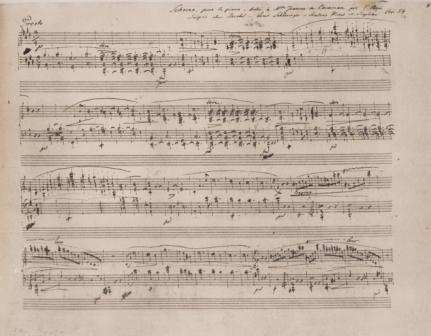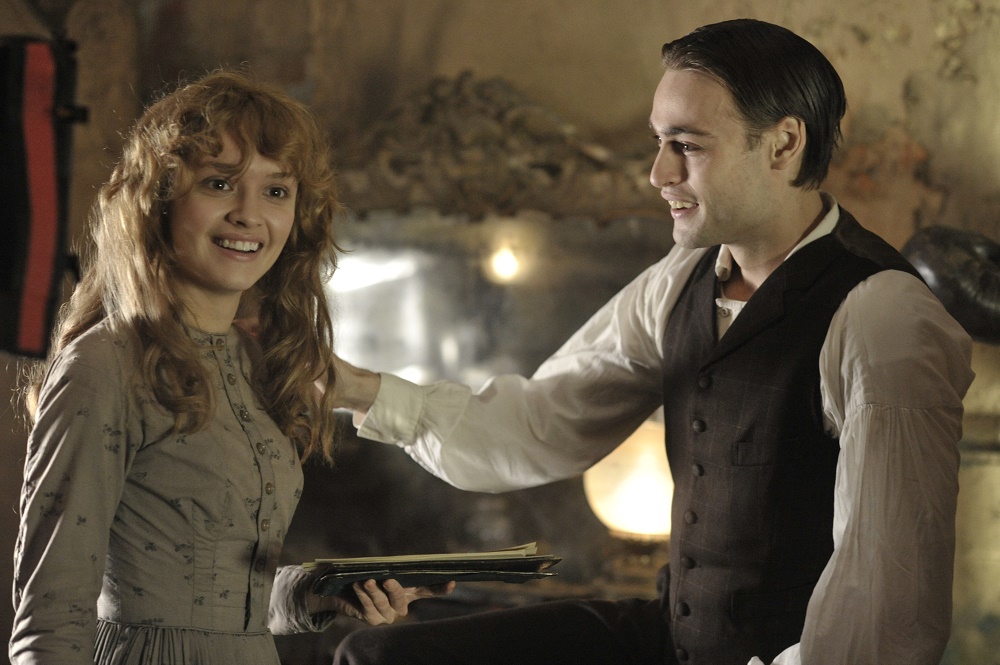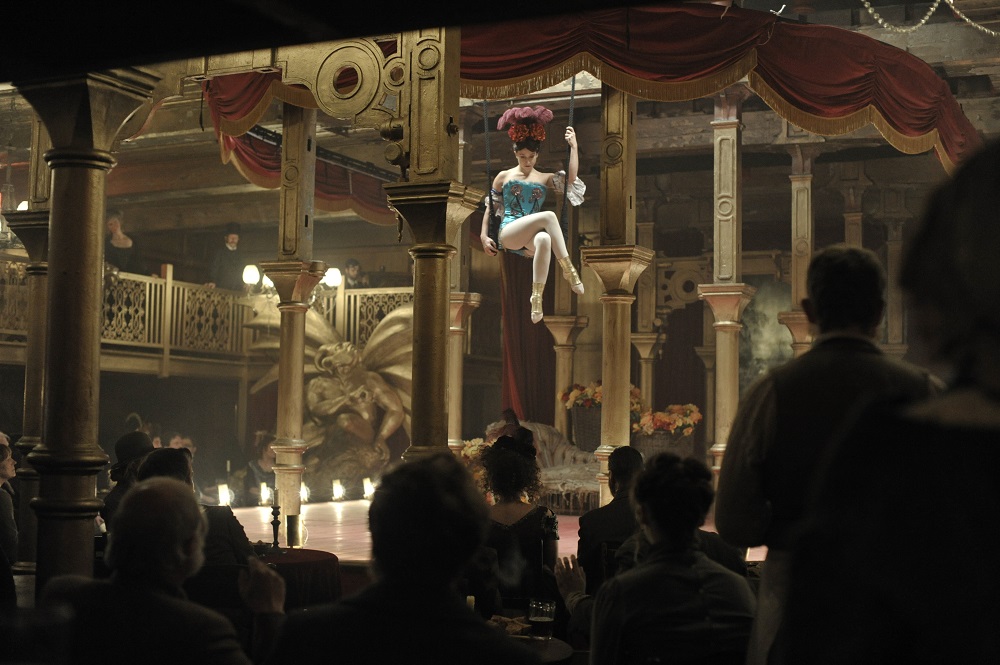If individual greatness is to be found in the way an artist begins and ends a phrase, or finds magical transitions both within and between pieces, then Pavel Kolesnikov is already up there with the top pianists. Listeners tuning in midway through the peaks of his lunchtime Prom – the great Chopin Fantaisie or the Fourth Scherzo – might have thought they were listening to an old master, while what we saw was a modest 28-year-old who looks much younger, but who moves with total assurance and absence of flash. His performance of Tchaikovsky's massive Second Piano Concerto with the National Youth Orchestra of Scotland was one of the highlights of last year's Proms; this took us even further in a Chopin odyssey intelligently planned and ineffably well-executed.
Kolesnikov programmed his recital in the shape of a giant Chopin butterfly with two iridescent wings of consecutively played miniature masterpieces leading to bigger numbers and the great Op. 49 Fantaisie as the central body. Its imaginative genius for connection is something I well remember in a Chopin recital by his great mentor, Elisabeth Leonskaja, each of her halves played without applause between pieces; Kolesnikov already has a similar balance between Russian orchestral pianism and the capacity for sudden flight. The concert began with spaciousness in the A flat major Waltz, but no repeat is ever the same in this pianist’s hands, and nothing stays solid for long. Extremes were licensed in the C sharp minor Waltz, beautifully connected to the Fantasie-Impromptu in the same key. Kolesnikov never rushes: even his most headlong brilliance comes up for air in well-placed "breaths".
 Five of the amazing Mazurkas, a selection of which Kolesnikov has recorded, showed Chopin’s infinite variety on the most intimate scale: playful in the major-key specimens, from the charm of the composer’s youth to the contrast of the rustic-rollicking C major, Op. 56 No. 2 with the sophisticated A flat major, Op. 50 No. 2; and introspective in the minor, supremely so in an intensely chromatic swansong (Op. 68 No. 4). Kolesnikov had even chosen a brighter action to his Yamaha plano for the third part of his programme, necessitating a keyboard change by four technicians while he chatted sensibly with Petroc Trelawny; like Richter, he never makes the instrument produce the brittle clarity for which it can be notorious.
Five of the amazing Mazurkas, a selection of which Kolesnikov has recorded, showed Chopin’s infinite variety on the most intimate scale: playful in the major-key specimens, from the charm of the composer’s youth to the contrast of the rustic-rollicking C major, Op. 56 No. 2 with the sophisticated A flat major, Op. 50 No. 2; and introspective in the minor, supremely so in an intensely chromatic swansong (Op. 68 No. 4). Kolesnikov had even chosen a brighter action to his Yamaha plano for the third part of his programme, necessitating a keyboard change by four technicians while he chatted sensibly with Petroc Trelawny; like Richter, he never makes the instrument produce the brittle clarity for which it can be notorious.
Those mazurka rhythms made an immediate connection with the start of the E major Scherzo (Chopin's manuscript pictured above), a paradigm of Kolesnikov’s sleight-of-hand between the well-weighted and the ethereal. And the Fantaisie showed his integrity in large-scale thinking, feeling very much like a final work – though in fact it was composed eight years before Chopin’s untimely death – in its search for a peace found in the very moving benediction before the still-questioning final bars.
The bright encore was the Grande Valse Brillante, scaled down at first to intimacy but growing wings like everything else in the programme. The BBC’s Young Generation Artists, including Kolesnikov among their number, are no chrysalids when they make their first radio appearances, but when they take off into the big wide world like Francesco Piemontesi and his equally thoughtful confrère whom we heard here with such unremitting pleasure, the choice is fully vindicated. Besides, anyone who relishes the risk-taking of Amy Winehouse, stands in the Arena for the Proms late-nighter of Rachmaninov's Vespers, and collects old perfumes, is fine by me.
Next page: watch Kolesnikov play Chopin's Mazurka in A minor, Op. 68 No. 2

 The accused is a demure little thing who, long before her husband’s death, was already in mourning for the termination of her career as an actress. A series of flashbacks establish that Lizzie has risen to gentility from the poorest circumstances. Her mother turned a blind eye to the molestations of randy old pervs. Orphaned, she drifts towards the local music hall, a place of magical enchantment staffed by dwarves and trapeze artistes, presided over by the celebrated cross-dressing Dan Leno (Douglas Booth, pictured above with Olivia Cooke) and his managerial sidekick known as Uncle (Eddie Marsan in a bald wig).
The accused is a demure little thing who, long before her husband’s death, was already in mourning for the termination of her career as an actress. A series of flashbacks establish that Lizzie has risen to gentility from the poorest circumstances. Her mother turned a blind eye to the molestations of randy old pervs. Orphaned, she drifts towards the local music hall, a place of magical enchantment staffed by dwarves and trapeze artistes, presided over by the celebrated cross-dressing Dan Leno (Douglas Booth, pictured above with Olivia Cooke) and his managerial sidekick known as Uncle (Eddie Marsan in a bald wig). It’s curious to witness Bill Nighy play someone so intensely buttoned up (Kildare’s rumoured homosexuality goes for nothing). The role was originally destined for the late Alan Rickman, and it’s possible to imagine what he might have done with it. Nighy turns in a gimlet-eyed tribute performance which is shorn of all his trademark tics and tricks and doesn’t quite compute. As Leno, Booth channels his inner Russell Brand without conveying the hypnotic appeal that, you assume, was his signature. Daniel Mays plays a PC Plod turn he could do in his sleep. There’s a nice turn from María Valverde (pictured above) as a smouldering other woman.
It’s curious to witness Bill Nighy play someone so intensely buttoned up (Kildare’s rumoured homosexuality goes for nothing). The role was originally destined for the late Alan Rickman, and it’s possible to imagine what he might have done with it. Nighy turns in a gimlet-eyed tribute performance which is shorn of all his trademark tics and tricks and doesn’t quite compute. As Leno, Booth channels his inner Russell Brand without conveying the hypnotic appeal that, you assume, was his signature. Daniel Mays plays a PC Plod turn he could do in his sleep. There’s a nice turn from María Valverde (pictured above) as a smouldering other woman. Five of the amazing Mazurkas, a selection of which Kolesnikov has recorded, showed Chopin’s infinite variety on the most intimate scale: playful in the major-key specimens, from the charm of the composer’s youth to the contrast of the rustic-rollicking C major, Op. 56 No. 2 with the sophisticated A flat major, Op. 50 No. 2; and introspective in the minor, supremely so in an intensely chromatic swansong (Op. 68 No. 4). Kolesnikov had even chosen a brighter action to his Yamaha plano for the third part of his programme, necessitating a keyboard change by four technicians while he chatted sensibly with Petroc Trelawny; like Richter, he never makes the instrument produce the brittle clarity for which it can be notorious.
Five of the amazing Mazurkas, a selection of which Kolesnikov has recorded, showed Chopin’s infinite variety on the most intimate scale: playful in the major-key specimens, from the charm of the composer’s youth to the contrast of the rustic-rollicking C major, Op. 56 No. 2 with the sophisticated A flat major, Op. 50 No. 2; and introspective in the minor, supremely so in an intensely chromatic swansong (Op. 68 No. 4). Kolesnikov had even chosen a brighter action to his Yamaha plano for the third part of his programme, necessitating a keyboard change by four technicians while he chatted sensibly with Petroc Trelawny; like Richter, he never makes the instrument produce the brittle clarity for which it can be notorious.